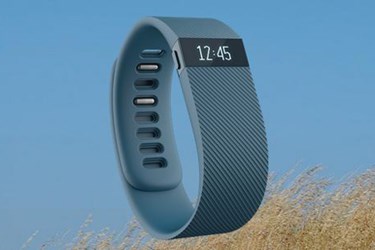Medtronic, Fitbit To Build An App That Tracks Both Activity And Glucose

Fitbit has pushed further into medtech by inking a partnership with Medtronic. The companies plan to leverage Fitbit’s activity tracking expertise with Medtronic’s continuous glucose monitoring (CGM) systems to develop a an app that will help both patients with type 2 diabetes and their doctors understand the connection between physical activity and glucose levels.
Fitbit CEO James Park announced in April that medical wearables are the “logical next step” for his company, known for designing trendy consumer fitness products. Park’s strategy is to dramatically increase the company’s R&D budget, consider M&A or partnership deals with companies in the medtech market, and consult with regulators.
Though the companies’ first medical product is still a long way off, Park told attendees at a recent San Francisco tech conference that “Fitbits [will] one day be able to save your life,” reported Venture Beat.
Exercising regularly can dramatically improve a patient’s ability to manage glucose levels over time, but the immediate effects depend on a variety of factors and patients are urged to monitor their glucose before and after exercise to understand how their body responds to different activities, according to the American Diabetes Association (ADA). Traditionally, patients have to manually track each separately, and doctors depended on patients’ memory and accuracy when making therapeutic decisions.
The app proposed by Medtronic and Fitbit, called MyLog, would track both activity and glucose levels automatically, and keep a record of the information that could be used by the patient and shared with doctors to improve the management of type 2 diabetes, according to a press release. A single streamlined tracking system would provide more meaningful insights into how an individual’s glucose responds to activity, said developers.
“We believe monitoring glucose is a critical element in the management of diabetes and therefore, glucose should be included among other vital signs,” said Laura Stoltenberg, VP and GM of Non-Intensive Diabetes Therapies at Medtronic, in a press release. “By creating a connection between physical activity and glucose levels, our iPro2 myLog mobile app solution provides new tools and insights, so that physicians can optimize therapy and patients can better understand how to manage their diabetes.”
Adam Pellegrini, VP of Digital Health at FitBit, commented that the integration of wearable technology with diagnostic tools provides a more “accurate and actionable view” of the patient’s activity, which will facilitate a “more informed conversation” between patients and providers.
Medtronic announced in September that the MiniMed 670G, or “artificial pancreas” device, received approval from the FDA and is the first closed-loop system of its kind to reach the market. Medtronic’s recent diabetes sales grew slower than expected, according to CEO Omar Ishrak, who expects numbers to significantly rebound once the 670G is fully on the market next year.
Fitbit recently purchased smartwatch developer Pebble for an estimated $40 million, said Reuters. The move is expected to strengthen Fitbit’s position in the wearables market
A recent report released by Soreon research predicts that the U.S. market for wearable devices will increase from $2 billion to $41 billion in the next five years. Market opportunity — especially in medical grade wearables — has provoked interest from non-medtech companies, such as Samsung, Apple, and Google.
